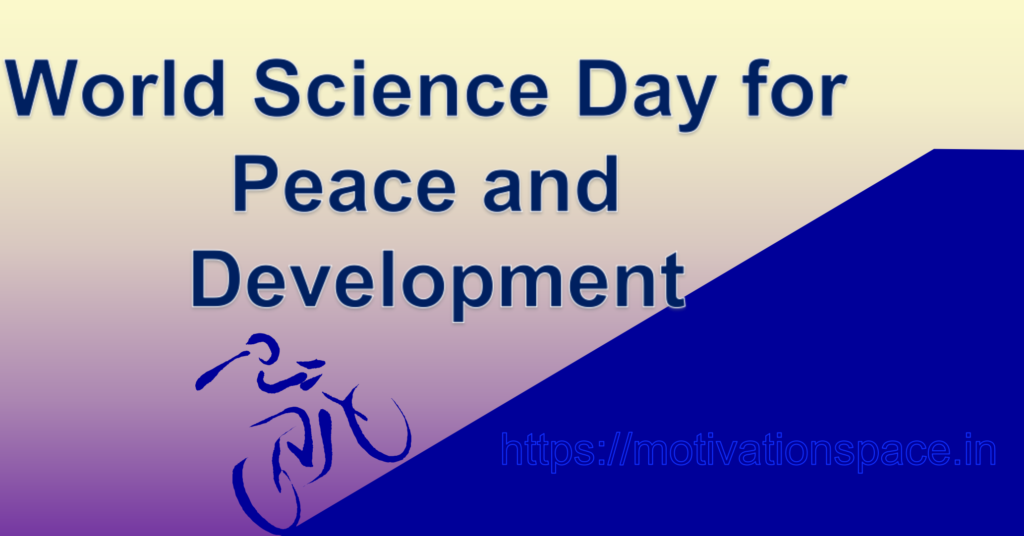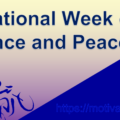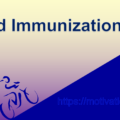Contents of this article
World Science Day for Peace and Development: The Transformative Power of Science in a Global Society. Science, as the systematic pursuit of knowledge, innovation, and understanding, has the remarkable potential to change the world for the better. World Science Day for Peace and Development, celebrated every November 10th, provides a platform to celebrate and reflect on the transformative power of science in our global society. In this article, we delve into the history, significance, and initiatives associated with World Science Day for Peace and Development.
The Origins and Significance of World Science Day
The United Nations Educational, Scientific, and Cultural Organization (UNESCO) established World Science Day for Peace and Development in 2001. This day serves to recognize the role of science in promoting international peace and development and to underscore the importance of scientific knowledge and collaboration in addressing global challenges.
World Science Day is not just about celebrating scientific achievements; it is also a reminder that scientific progress can be harnessed for the greater good. By focusing on the principles of peace and development, this observance emphasizes the need for scientific advancements that contribute to global harmony and improve the lives of people worldwide.
The Twin Goals: Peace and Development
The dual goals of peace and development that underpin World Science Day are integral to the broader mission of the United Nations. Let’s explore what these goals mean in the context of science:
Promoting Peace:
Science has played a crucial role in conflict resolution, disarmament, and diplomacy. Scientific collaboration fosters trust among nations and can lead to peaceful solutions to global conflicts, reducing the risk of war and violence.
Advancing Development:
Scientific discoveries have transformed our world, leading to breakthroughs in healthcare, agriculture, and technology. These advancements can elevate living standards, reduce poverty, and improve access to education and healthcare, contributing to sustainable development.
The Transformative Power of Science
Science has indeed transformed our world in countless ways, revolutionizing how we live, work, and understand our place in the universe. Some key areas where science has had a transformative impact include:
Healthcare:
Medical science has led to remarkable advancements in disease prevention, diagnosis, and treatment. Vaccines, antibiotics, and medical imaging have saved countless lives and improved global health.
Communication:
Advances in telecommunications and information technology have connected people across the globe, facilitating the exchange of information, ideas, and knowledge on an unprecedented scale.
Agriculture:
Agricultural science has led to increased crop yields, food security, and sustainable farming practices, helping to alleviate hunger and poverty.
Environmental Stewardship:
Environmental science has brought to light the urgent need for conservation and sustainable resource management. Scientific research on climate change and pollution informs policies and actions to protect our planet.
Space Exploration:
Space science has expanded our understanding of the universe and our place in it. The development of space technologies has also led to innovations with practical applications on Earth.
Energy Innovation:
Advances in energy science and technology are essential for addressing the global energy challenge, reducing greenhouse gas emissions, and transitioning to renewable energy sources.
World Science Day Initiatives
During World Science Day for Peace and Development, various initiatives take place worldwide, aimed at promoting scientific engagement and addressing global challenges:
Scientific Conferences and Symposia:
Scientific gatherings and symposia are organized to discuss research and innovation in various fields. These events provide opportunities for researchers, policymakers, and practitioners to share insights and foster collaboration.
Educational Outreach:
Schools and universities often engage in educational programs and events to inspire the next generation of scientists and promote scientific literacy.
Science Festivals:
Science festivals bring together the public and scientists, offering interactive exhibitions, workshops, and demonstrations to showcase the wonders of science.
Scientific Competitions:
Competitions and challenges encourage researchers and innovators to develop solutions to global challenges, from climate change to public health.
International Collaboration:
World Science Day encourages cross-border scientific collaborations, where researchers and institutions work together on projects that address shared global challenges.
Science Communication and Advocacy:
Media campaigns and public lectures aim to raise awareness about the importance of science and the impact it has on our lives.
Science Diplomacy and International Relations
Science plays a significant role in diplomacy and international relations. Scientific cooperation between nations can help build bridges and foster understanding. Some examples of science diplomacy include:
Space Collaboration:
International space exploration projects, such as the International Space Station (ISS), demonstrate how scientific cooperation can transcend political boundaries.
Environmental Agreements:
Global environmental agreements, such as the Paris Agreement on climate change, rely on scientific research and international collaboration to address pressing environmental challenges.
Nuclear Arms Control:
Verification of arms control agreements depends on scientific methodologies and technologies to ensure compliance, fostering disarmament and global security.
Public Health:
Collaborative efforts to combat global pandemics, such as the COVID-19 pandemic, underscore the importance of international scientific cooperation.
Challenges and Ethical Considerations
While science has been a force for progress and development, it is not without its challenges and ethical considerations. Some of these challenges include:
Ethical Dilemmas:
The ethical implications of scientific advancements, such as those related to genetic engineering, artificial intelligence, and biotechnology, require careful consideration and responsible use.
Dual-Use Technologies:
The same technologies that have benevolent applications can also be used for harmful purposes. Ensuring the responsible use of scientific knowledge is a persistent challenge.
Disparities in Scientific Knowledge:
Not all nations have equal access to scientific advancements. Bridging the knowledge gap and ensuring that benefits of science are shared globally are important goals.
Funding and Research Priorities:
Decisions about research funding and priorities can impact the direction of scientific endeavors and their potential to address global challenges.
Conclusion for World Science Day for Peace and Development
World Science Day for Peace and Development celebrates the incredible capacity of science to transform the world. By emphasizing the twin goals of peace and development, this observance encourages the scientific community, policymakers, and society at large to harness the potential of science for the betterment of humanity. As we face complex global challenges, from climate change and pandemics to energy and food security, the role of science in addressing these issues becomes ever more critical. By recognizing the importance of this annual observance, we renew our commitment to the transformative power of science and its potential to shape a more peaceful, prosperous, and sustainable world. Science, when wielded for the common good, has the capacity to effect profound and positive change in our global society. Feel free to drop a comment below or contact us for any query related to the contents of this website.


